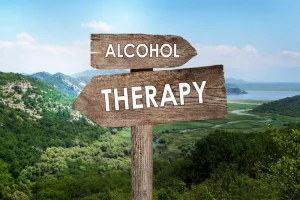
And so this is not like, this punishment, right? Like, because I knew when I was 23, and I was told, you know, like, you have to, you have to be sober. Why am I, out of all the people that I know, like, why am I this way? Why do I have to quit, and it was such this negative, you know, Outlook, like I was giving something up.
- And we know that certainly young people are initiating drinking later.
- She could always live without alcohol if she wanted to, and she wasn’t drinking every day.
- There might be a gender dynamic going on there in terms of the kind of historic links between beer and masculinity.
- Because of how alcohol affects the body, on average most non-drinkers are healthier than those who drink.
Here’s What Happens to Your Body When You Stop Drinking for 30 Days
Well, in framing, not drinking here increasingly, as just a health choice. I think that it helps, like, that’s what’s framed it for me. And one of the things I definitely wanted to talk to you about because it feeds into this idea of adopting a lifestyle, not a label. And that’s not to say that you didn’t have an I had a problematic relationship with drinking, where it was leading us nowhere good and definitely addicted, and, and all the things.

Is Sober Curious the Same as Alcohol-Free?
Socially, alcoholism may be tied to family dysfunction or a culture of drinking. And everybody’s like, good, Anya, that shit, that it’ll kill you. Like, way to go, man, that that must have been hard. I’m really excited to have this conversation. Because I think that your approach at 1000 hours dry, of being an alcohol-free lifestyle, rather than a label of being an addiction or recovering from addiction, welcoming all people is really exciting. If you’re living with someone who has AUD, it’s important to understand what’s behind the addiction to alcohol and to learn how to cope.

AFL PODCAST
Where many who are Sober Curious are making an active choice to better their overall health, for those with addiction becoming sober could be the difference between life and death. In recent years, the term Sober Curious has become popularized for individuals who aim to dabble in sobriety without any hard set rules or regulations. Many who began as a Sober Curious individual do end up living an alcohol-free lifestyle once they’ve experienced the benefits from no longer drinking. Some people may be hesitant to seek treatment because they don’t want to abstain entirely. Moderation management or moderation treatment can be an effective approach, in which people learn responsible drinking habits through a structured program. Research suggests this form of treatment can help people shift from heavy to moderate drinking, improve quality of life, and enhance emotional well-being.

Lower Cancer Risk
- However, for people who exceed recommendations in the Dietary Guidelines for Americans, he said staying away from alcohol for a month can reap changes.
- And like you I want to, you know, I always say that not drinking is the foundation that allows me to live the life I want to lead.
- Welcome to the Hello Someday Podcast, the podcast for busy women who are ready to drink less and live more.
- When you quit drinking, you’ll probably notice that the colds, flu, and other illnesses you always seem to catch happen less often.
- However, your serotonin levels quickly return to normal levels, which could lead to feelings of depression.
Overall, it sounds like you’re coming away from, or your research is showing things that are overall positive, right? Will remain important, but in terms of health reasons, seems pretty good. If you live in London, and Elva talked about this as well, dry bars that are popping up, it might be much easier to access these kinds of products. So I think it’s partly to do with accessibility, visibility. There might be a gender dynamic going on there in terms of the kind of historic links between beer and masculinity. And masculinity and drinking and be able to hold one’s drink, that again, make it more difficult for men to opt out.
- Healing from shame can help families cope with an addicted loved one.
- Here in the United States, one particular option has grown dramatically in its availability and legality.
- Oh, yeah, I think it was something that I don’t want to say was bound to happen.
Cognitive Benefits of Quitting Alcohol
So I think, yeah, there’s a whole kind of raft of changes that have moved young people back into the home or kept them in the home for longer and more where they’re socializing externally less. And I imagine that’s definitely impacting on young people’s drinking or nondrinking practices. And that has translated to my personal https://ecosoberhouse.com/ relationship, my work life. I started an advanced business with my best friend, I have so much time and I do so many more things. That’s the tip of the iceberg, but the transformation I’ve seen in my life since I’ve stopped has been crazy. So to keep herself going, Syd often felt like she had to keep drinking.
Copy the code below to embed the WBUR audio player on your site
It’s really, you know, you’re taking people out of the matrix, essentially, like, you know, yeah, and you’re just letting people know, like, Hey, I know, you believed this. But celebrating that and really, like you said, just letting people know that alcohol free lifestyle drinking isn’t good for anybody. Like we’re not because that was one thing that was, you know, kind of taught is to stay in your own lane and not worry about other people’s drinking and I think for sure, like you can’t make other people get sober.
You’ll become acutely aware of social pressures to drink.
Doing this in advance will allow time for both people to process the discussion and set clear expectations. Alcohol use disorder is a problematic pattern of alcohol use that leads to distress in one’s daily life, according to the DSM-5. Experiencing at least two symptoms throughout the course of a year merits a diagnosis, from mild to moderate to severe. For many, beer, wine, and spirits conjure up thoughts of social gatherings and tipsy fun. But alcohol is a nervous system depressant and easily alters behavior, culminating in some cases in the emotional pain and physical disintegration of alcohol addiction, colloquially known as alcoholism.






